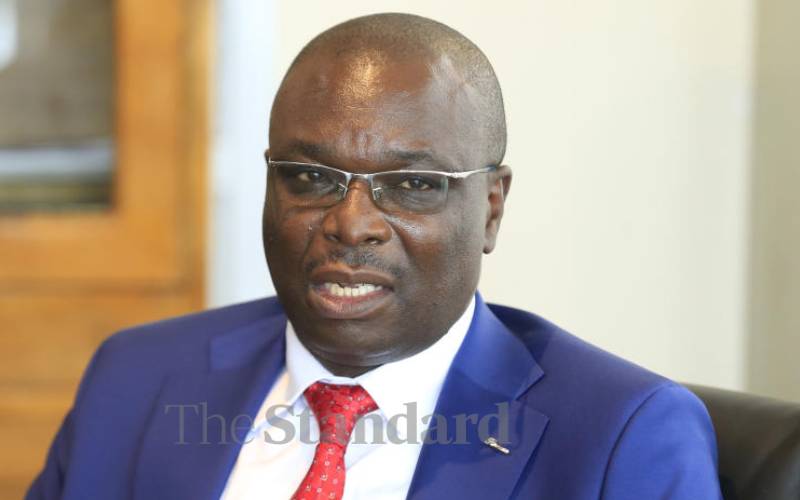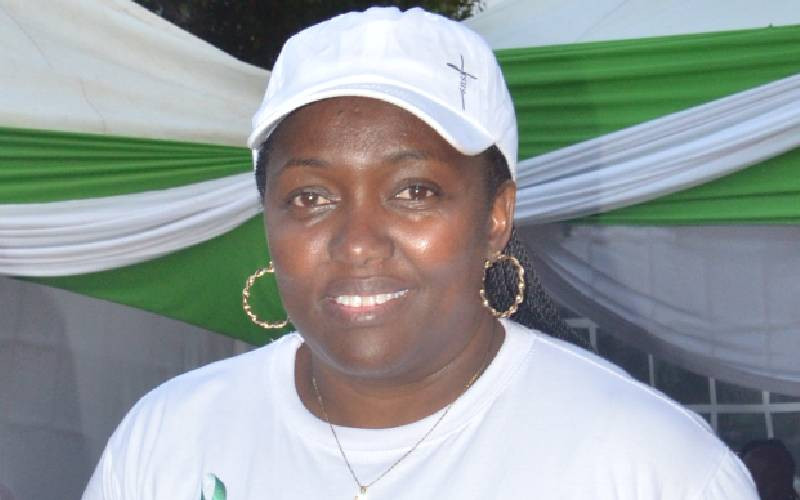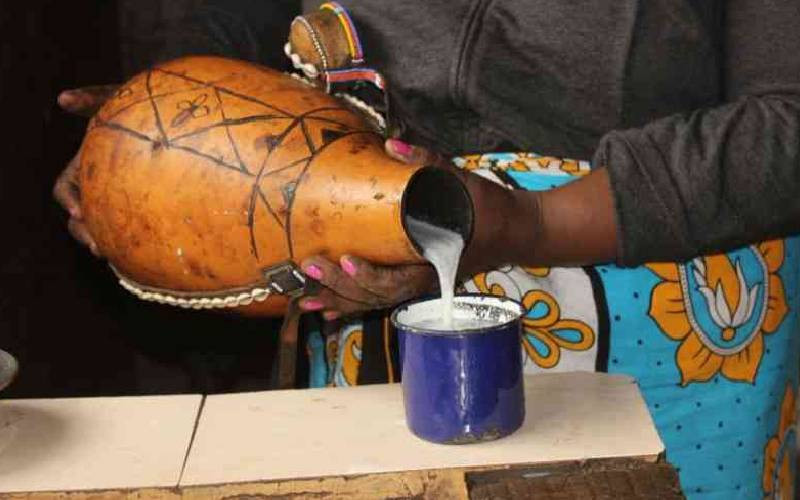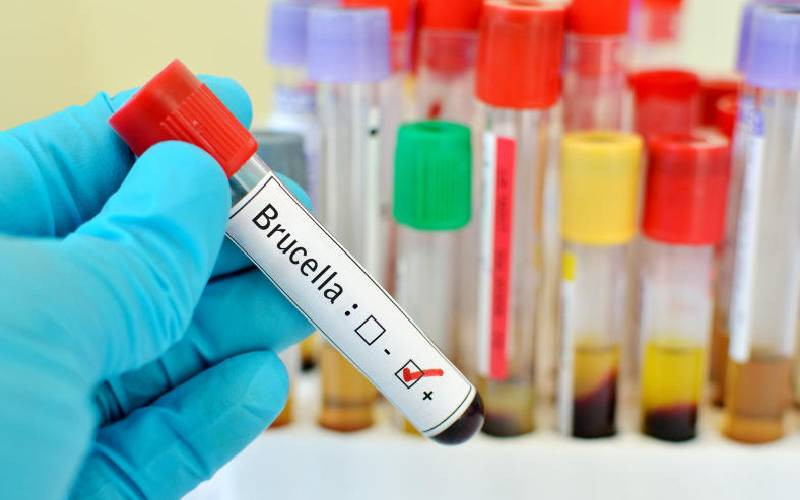
Kenya National Bureau of Statistics Director-General Macdonald George Obudho. [Stafford Ondego, Standard]
The seventh round of the Kenya Demographic Health Survey will kick off on February 17 and run for the next six months at a cost of Sh993 million.
According to the state, the survey comes eight years after the last one in 2014, and will for the first time collect data on early childhood development, mental health and diverse range of noncommunicable diseases.
At least 350 personnel have been trained to carry out the exercise in various parts of the country. This was revealed by the Kenya National Bureau of Statistics Director-General George Obudho during the end of the training of the workforce in Nakuru City last Sunday.
Mr Obudho said the survey would be wide and gather data on some of the topics not covered previously.
The data on these will be clustered to the county level to enable county health departments to formulate health policies and strategies aligned to each county’s priorities.
Delays
“There were delays in conducting the surveys as a result of many issues, including conducting the 2019 Kenya Population and Housing Census. These surveys will be critical in giving a baseline for the incoming government to get information on what to prioritise next,” Obudho said.
The first Kenya Demographic Health Survey was conducted in 1989, with subsequent ones in 1993, 1998, 2003, 2008 and 2014.
In the previous surveys, data on domestic violence against women was collected until in 2014 when that on the male counterparts was featured.
“We realised that domestic violence was not only centred against women, men were suffering too, and in 2014, the survey included data on men. This year, too, data on domestic violence will cater for men and women,” Obudho said.
Ministry of Health Director-General Patrick Amoth stressed the importance of the survey, saying beside having the data bank, it would be a key source of population-based health indicators.
“These are critical in decision making and formulation of policies that determine the direction Kenya takes in implementing health programme,” he said.
The survey will collect data on topics such as reproductive health, child health and immunisation, nutrition, HIV/Aids and TB,noncommunicable diseases, and gender-based violence.
At the household level the survey will seek to obtain information on demographics, utilisation of health services at out- and in-patient points, healthcare financing from a household perspective and Covid-19 related information, including mortality and vaccination.
“This will provide critical data points to determine the level of progress made in achieving set programmatic target in the health sector such as infant mortality rate, childhood vaccination coverage, delivery by skilled attendants, contraceptive prevalence rate and nutrition status ,just to name a few,” said Dr Amoth.
He said the survey would also obtain information on Covid-19 vaccination coverage and universal health coverage indicators.
He added that the Kenya Population and Housing Censuses (KPHC) and household based sample surveys such as the Kenya Demographic and Health Surveys had played a critical role in assessing the impact of the country’s population policies and programme over the last four decades.
National Council for Population and Development Director General Mohamed Sheikh said the population censuses and the demographic health surveys had over the period shown that the country had made progress, including reduction of the population growth rate from a high of 3.8 per cent in 1978 to a low of 2.2 per cent in 2019.
Population policy
“The 2022 KDHS is being undertaken at a time development of the new population policy for Kenya is being finalised. Results of the 2022 KDHS will therefore be used to inform the 10 years Plan of Action for the implementation of the proposed population policy, which is expected to come into effect later this year,” Dr Sheikh said.
Despite the achievements of the country’s population policies and programmes, results of the previous population censuses and demographic health surveys have highlighted areas that still require to be addressed, including the increasing healthcare costs and low health insurance coverage.
Challenges of child care, especially for working mothers, increasing cases of noncommunicable diseases, as well as increasing cases of injuries and deaths from road traffic accidents and poor support for healthy ageing have also been highlighted.
 The Standard Group Plc is a multi-media organization with investments in media
platforms spanning newspaper print
operations, television, radio broadcasting, digital and online services. The
Standard Group is recognized as a
leading multi-media house in Kenya with a key influence in matters of national
and international interest.
The Standard Group Plc is a multi-media organization with investments in media
platforms spanning newspaper print
operations, television, radio broadcasting, digital and online services. The
Standard Group is recognized as a
leading multi-media house in Kenya with a key influence in matters of national
and international interest.











